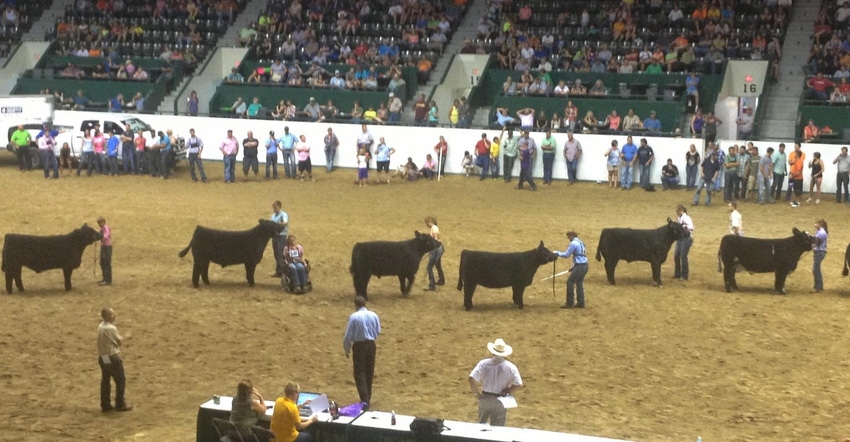Cancelled rodeos & livestock shows raise alarm bells
As the pandemic continues to wage a war against the United States, many agricultural events are cancelling. Will they return in 2021 and beyond?
October 24, 2020

For years, animals rights activists, environmental extremists and the Hollywood elite have targeted livestock producers and our way of life.
Should they have their way cattle, pigs, poultry and sheep would be obsolete. Meat, dairy and eggs would be off the plate. And our body sovereignty and our ability to choose the diet that best works for us — well, that’s off the table, too. Eat your vegetables and forget about the steak.
Fast-forward to 2020. A pandemic has circled the globe, and here in the United States, people are suffering due to the physical, emotional and economic repercussions of the virus, the shutdowns, the school closures and more. Now, we are seeing these extremists take advantage of the chaos to push their agendas further.
I’ve covered this at length in previous blogs, and to bring you up to speed, here are the links of various initiatives they have pushed this year:
Currently, agriculture’s future hangs in the balance in numerous ways, but it’s very apparent the threat in places like California, where the ballot includes items like Prop 15. If passed, Prop 15 would increase property taxes on things like agricultural buildings and fruit trees. This tax hike might be the final straw that breaks the camel’s back for many California farmers and ranchers.
And then there are repercussions that seem to be happening naturally that surely please these anti-animal agricultural extremists.
I’m talking about the closures, cancellations and postponements of major rodeos and livestock shows. From the National Western Stock Show to the Fort Worth Stock Show to the Cheyenne Frontier Days (and countless others), event planners and the cities who host these agricultural expositions are making the tough call to shutter the doors on these time-honored traditions.
But the question remains — will they ever come back once the dust settles on the COVID-19 pandemic?
With increased pressures from activist groups and greater liabilities to have animals in public places where they might be in danger from acts of violence from “vigilantes,” it appears these groups might finally be caving to the mob.
It is reassuring to see that many of these events are being picked up and moved to more friendly cities, and it’s maybe even exciting to think about how some of these events might even improve with a new venue and new leadership spearheading the event.
It’s also perhaps a relief for many agricultural families to attend these events, which now aren’t open to the public. Maybe we can finally truly focus on showing our animals and competing without the fear that a mom with a stroller full of kids might naively get kicked or run over when they get to close to our animals.
However, what does this truly mean for our future in the animal agriculture industry? Without a public place to connect with urban consumers, how do we tell our story and show people in the community who we are and what we do? If we continue to let these major events cancel, what is to become of our place in society? When does showing cattle or competing in rodeos become one of those antiquated things that states decide needs to go away for good?
Now I don’t mean to be doom and gloom today, but I think these cancellations underscore the importance of taking our stories to social media. I think we need to continue to model to our young people what showing cattle is truly all about. And we need to show them how to pivot and move forward in challenging times like this.
That is exactly what we are seeing as volunteers literally move mountains to host these shows in other places, but I urge you to think about the intent of these cancellations? Is it truly just about the virus or is there something larger and more long-term going on here?
The opinions of Amanda Radke are not necessarily those of beefmagazine.com or Farm Progress.
About the Author(s)
You May Also Like




.png?width=300&auto=webp&quality=80&disable=upscale)
